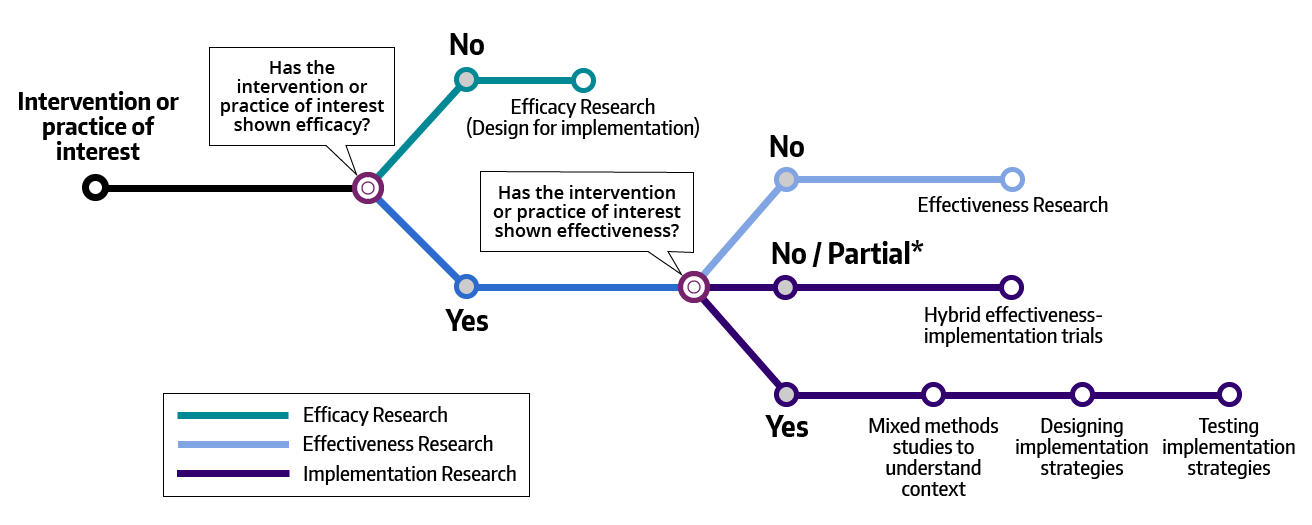
What is an implementation science question?
Implementation science is centrally focused on the effectiveness of implementation strategies, rather than interventions or evidence based practices. Specifically, implementation science attends to the context in which strategies are applied, and how that context shapes effectiveness of implementation strategies.
To lay the foundation for research on the effectiveness of implementation strategies, it is important to understand the barriers and facilitators impacting the adoption and widespread use of evidence based practices. Early work in the field of implementation science focused largely on barriers and facilitators, but the field has now progressed to understanding this as a necessary, but merely a first step.
Beyond barriers and facilitators, implementation science questions should examine the context of the implementation strategy or strategies employed, how that context shapes the strategy or strategies, and/or focus on at least one relevant implementation outcome (see Proctor et al 2011 for a list of these outcomes and their definitions).
Locating yourself on the “subway line” of translational research

Adapted from Lane-Fall, M.B., Curran, G.M. & Beidas, R.S. Scoping implementation science for the beginner: Locating yourself on the “subway line” of translational research. BMC Med Res Methodol 19, 133 (2019). https://doi.org/10.1186/s12874-019-0783-z
*In some cases it may be appropriate to move forward with a hybrid Type I trial in the absence of effectiveness evidence (e.g. very strong efficacy, indirect evidence supportive of potential effectiveness in context of interest, and/or strong momentum supporting implementation in a health care context).
Key Implementation Science Questions
Core questions:
- What are the most effective techniques to improve the distribution and receipt of evidence?
- What are the most effective techniques to incorporate new discoveries and evidence-based practices into care delivery?
- How do contextual factors influence implementation success or failure (and how can these contextual factors be modified to increase chances of success)?
- What are the most effective techniques to de-implement practices that are no longer effective or were never effective in the first place?

In addition to these broad implementation science questions, there are other ways to frame your question. Authors of two publications (excerpted below) suggest using the challenge faced, or the objective sought, as the starting point for forming an implementation science question.
Questions relating to the challenge of:
❯ How can a program be scaled up to broader regions or populations?
❯ How can sustainability or health maintenance be achieved?
❯ Why don’t tested programs work when transferred to new settings or work in some settings and not others?
❯ How can implementation be improved to assure replicability?
❯ How can interventions be delivered to assure integration?
❯ What is the impact across issues of race, class, education, gender, age, geography (urban-rural) and other relevant factors?
❯ Under what conditions does the program work?
❯ Is the tool, intervention, or strategy worth it? Is it cost-effective?
❯ Does the program achieve the intended public health impact?
Adapted from Fundamentals of Implementation Research (2012)
Questions relating to the objective of:
❯ What describes the main factors influencing implementation in a given context?